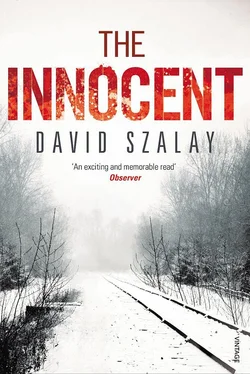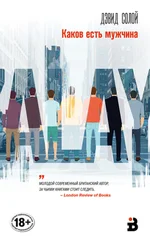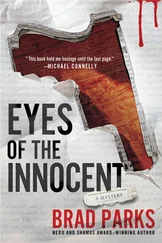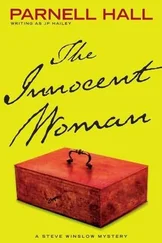‘Okay.’
I knew a little about Anichkova. She had been a Komsomol member – a very steady, sensible young woman, from a Communist, working-class family. She was married. Her husband, whom she had met at the Urals State Technical University, was also on the hospital staff. It was while at the Urals State Technical University that she had started informing for the NKVD.
‘You spend a lot of time with him, don’t you?’ I said.
‘Yes, I suppose so.’
‘What does he do? How does he spend his time?’
‘How does he spend his time?’ She frowned thoughtfully. ‘It’s a bit of a strange question to ask about someone like Tolya. It’s such a struggle for him to do the ordinary, everyday things that he doesn’t have much energy left for anything else. We work with him, of course.’
‘What do you mean you work with him? You try to teach him?’
‘We try to teach him, and we try to learn from him as well. Which is the same thing, really.’
I smiled. ‘You’ve no reason, I suppose, to be suspicious of him in any way?’
‘No,’ she said.
‘I’ll tell you why I ask.’ And I told her about the warrant for his arrest that had been issued in 1942. ‘He was a Nazi sympathiser,’ I explained. ‘He was also a famous pianist. Did you know that?’ She said she did not. ‘For years we thought he was dead, that he had been killed in the war. That’s why it’s taken so long to track him down. You’re not surprised?’
‘I’m surprised. I suppose.’
‘So there’s nothing you’ve noticed,’ I said. ‘Nothing suspicious?’ She shook her head. ‘I don’t want to jeopardise your professional integrity in any way.’
‘I know you don’t.’
‘Nothing questionable, strange, nothing at all?’
Smoking, she waited a while before shaking her head and saying, ‘No, I don’t think so.’
‘Okay.’ I stood up, and took my hat, and was about to thank her, when she said, ‘Well, there is one thing.’ She had obviously been wondering whether to say it.
‘What?’ I said.
‘It’s not necessarily suspicious.’
‘What is it?’
‘I mean … It’s a bit strange.’
‘What is?’
‘His writing.’
‘Whose?’
‘Tolya’s,’ she said. ‘Yudin’s.’
When I told Lozovsky that I knew about Yudin’s writing his face showed nothing, or only the slightest tightening of the jaw. ‘Yes?’ he said. I said I was surprised he hadn’t mentioned it. ‘Doctor Anichkova told you about it?’ he said. ‘It’s not as significant as you probably think.’
‘It seems significant.’
‘It isn’t. When you read what he’s written, you’ll see.’ From one of his desk drawers – we were in his office – he took some exercise books, the sort that are used in schools. ‘There,’ he said. ‘It’s true that to a very limited extent he can read and write … You probably think it means he’s less mentally impaired than you thought he was. It doesn’t.’ He lit a papirosa. ‘When I first knew him he was obviously illiterate, and in any normal sense he still is. If he tries to write by thinking about what he’s doing, he can’t. It’s hopeless. Just a mess. But if he doesn’t think about it, if he just does it, without lifting the pencil from the paper, he can write quite well. It’s another example of “muscle memory”, in fact. That is, it’s his hand that still knows how to form the words, not his head. And in fact it’s easier for him, in a way, to write than it is for him to speak. He can take his time. It’s a very slow process. He puts sentences together very slowly, word by word. It takes him hours to write just a few words. The actual writing, putting the words down on paper, isn’t the problem. The problem is finding the words in the first place. That’s very difficult for him.’
I opened one of the exercise books. The unlined pages were filled with large, messy handwriting, and that each page had been written over several sessions was obvious from the variation in pencil quality, often from one line to the next. Turning them, I saw sentences, or parts of sentences:
The name of a teacher I had at school …
I imagine an enormous fly …
A lake surrounded by trees …
‘If it’s so difficult,’ I said, ‘why does he do it?’
Lozovsky said he did not know. Then he said, ‘I suppose through writing he’s able to make some sense, at least, of his existence. It also helps him piece together and understand the past. To some extent. He writes about the same few memories, mostly, over and over.’
‘What memories?’
‘Very early ones. That’s normal in amnesia cases. I told you that.’
‘What else does he write about?’
Lozovsky shrugged. ‘His problems. He writes about his problems in interacting with the world. Which I suppose is the only thing he has any first-hand knowledge of now.’ He lit a papirosa with the end of the previous one. Then he said, ‘The sad thing is, he seems to hope that through this writing he’ll be able to find his way back to where he was when he was injured, and somehow pick up his life where he left off, and of course he won’t.’
I know that Lozovsky had the highest esteem for Yudin. He once said to me, ‘For him everything seems meaningless, and he still tries to make some sort of meaning out of it. He never succeeds, yet he still keeps trying to see his experience as something meaningful, to make some sort of meaning for himself. Misguidedly, you might say. I don’t think so. That’s what I’m doing in my work. That’s what science is. And not just science.’ Yudin was obviously a sort of inspiration for him. Perhaps that partly explains what happened later.
I still have one of the exercise books. The first one, written in 1945. The first entry takes up half a page – ‘I’ve forgotten what whole things are like’. Underneath is scrawled, in smaller writing, ‘no thoughts no memories’. And then, on the next page, ‘I dont remember my sisters names of my sisters’. The first few pages are like this. Then the entries start to get longer.
Because of my injury I’ve forgotten everything I ever learned or knew … I have to start again. Mostly it’s because of my memory that I find it so hard to understand things. I’ve forgotten everything I ever knew. I have to learn like a child learns. I have the memory a child has …
The name of a teacher I had at school. Mariya Gavrilovna Lapshina. The names of my friends Sanka Mironov and Adya Protopopova and Volodka and Marusya.
Sometimes I remember who Lenin is. I remember I have a mother and sisters. Images like visions suddenly appear but I don’t understand what they are …
Some vague thoughts suddenly come into my mind … I don’t understand them. I try but I can’t. They vanish. I can’t remember them … Images of objects come into my mind. They vanish before I can understand what they are. Sometimes I remember words but they don’t have any meaning …
Sometimes I remember who Lenin is. I remember I have a mother and sisters … Images like visions suddenly appear but I don’t understand what they are … Since I was wounded I seem to be a newborn thing that just looks and listens but has no mind of its own …
I can remember my childhood even primary school.
I remember the teacher I had at school Mariya Gavrilovna Lapshina and the names of my friends Sanka Mironov and Volodka Salomatin and Adya and Marusya. I go to Young Pioneers camp. I remember the camp and the things we did. I remember Sverdlovsk and parts of it and the whole town. Also my best friends Sanka Mironov and Volodka Salomatin and Adya Protopopova and Marusya Luchnikova. A teacher called Mariya Gavrilovna Lapshina.
I have hallucinations … I see something ugly. A human face with enormous ears … When I close my eyes I see millions of tiny insects. Or I see faces that frighten me. There’s something strange and horrible about them. I can’t see whole things. I know that sounds strange. I’ve forgotten what they look like …
Читать дальше












